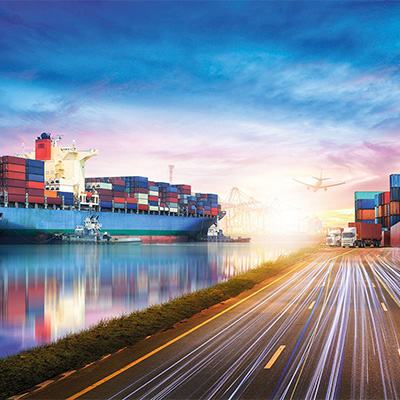By Richard Wilding OBE, Professor of Supply Chain Strategy
If the UK were to leave the European Union, what would happen to UK-Europe supply chains? Right now, across the UK—and across Europe, too— businesses are asking that very question.
And one thing is certain: those supply chains will not be unaffected. There will be changes.
What will those changes be? Even now, with the referendum’s outcome still uncertain, their broad thrust can be predicted. That’s because the UK-Europe supply chains that are presently in place largely conform to the imperatives of supply chain network design principles, and known best practices in terms of supply chain strategy.
And if the underlying logic of a supply chain network changes, then the network itself will change so as to reflect the new reality. Likewise, a supply chain strategy predicated upon the UK being within the European Union can hardly be unaffected if the UK is suddenly not a part of the European Union.
So to that extent, at least, the politicians have got it wrong. Should UK voters decide to leave the European Union, it won’t be leap in the dark.
Any supply chain strategy exercise begins with a consideration of customer-supplier trading relationships. And here, the logic of many existing UK-Europe supply chains is predicated upon the UK being part of the European Union’s free trade area.
Put another way, the single market has worked to harmonise standards, and eliminate tariffs on cross-border trade. Going forward, should the UK leave the European Union, those assumptions will no longer hold. UK businesses may find suppliers outside the European Union to be a viable and attractive proposition— and likewise, their existing European Union customers may prefer to engage with suppliers who are still a part of the European Union. And supply chain networks will evolve so as to reflect those new preferences.
These changes won’t come in overnight, of course. Consider the UK’s automotive industry, which accounts for 8% of economic output as measured by gross value added. Or the UK’s aerospace industry, which makes up 5% of the manufacturing sector’s sales revenues, contributing £6.8 billion in gross value added to the UK economy.
In each case, sourcing decisions are based around model lifecycles, and changes will take years to filter through. Will components be manufactured in Birmingham—or Barcelona, or Bremen? Likewise, the world’s vehicle manufacturers have some interesting choices ahead regarding plant location and where specific models will be manufactured. But the dangers are obvious—and with the UK’s automotive industry employing 140,000 people, and exporting over 80% of the vehicles it manufactures, the stakes are high.
That said, for other supply chains, geography will act as a natural counterweight. Europe has always been an important trading partner of the UK, even at the height of the British Empire. So British supermarkets will continue to import French cheese, German yogurt, Spanish red wine, Belgian chocolate, Greek olive oil, and much else besides.
But even if these supply chains are unchanged, the supply chain processes managing the flow of goods will have to change. As they are already changing and adapting, of course, due to pressures on borders and infrastructure caused by the migrant crisis.
Put another way, a vote to leave the European Union is a vote for changing border controls, customs clearances, perhaps more extensive passport checks, and—taken together—border crossings that may be more uncertain and unpredictable than now.
All of which will impact businesses— both here and in Europe—that rely on quick and predictable border crossings to feed just-in-time manufacturing processes, or low-inventory distribution systems. Businesses such as Jaguar Land Rover, for instance, which has an extensive European supply chain, making around 1,100 collections a week from almost 500 suppliers in 17 countries, delivering them to UK assembly plants via a system of crossdocks.
Almost inevitably in such businesses, inventory holdings will have to be modified, and lead times lengthen, thereby potentially raising costs and sapping competitiveness. And for those working in the logistics and supply chain industry, there’s another potential issue to contend with: at one large logistics provider I recently spoke with, 45% of its staff comes from Eastern Europe. Will these people stay, or return to their home nations?
So what to do? Come 23 June, businesses and boardrooms don’t have a vote, of course. But, as ever, they will be in the front line of those called upon to deal with the consequences of a vote to leave the European Union.
And with the eventual outcome seemingly finely-balanced, it may be time to give some thought to post-Brexit supply chains.
About Cranfield University
Cranfield University is a specialist postgraduate university that is a global leader for education and transformational research in technology and management.

